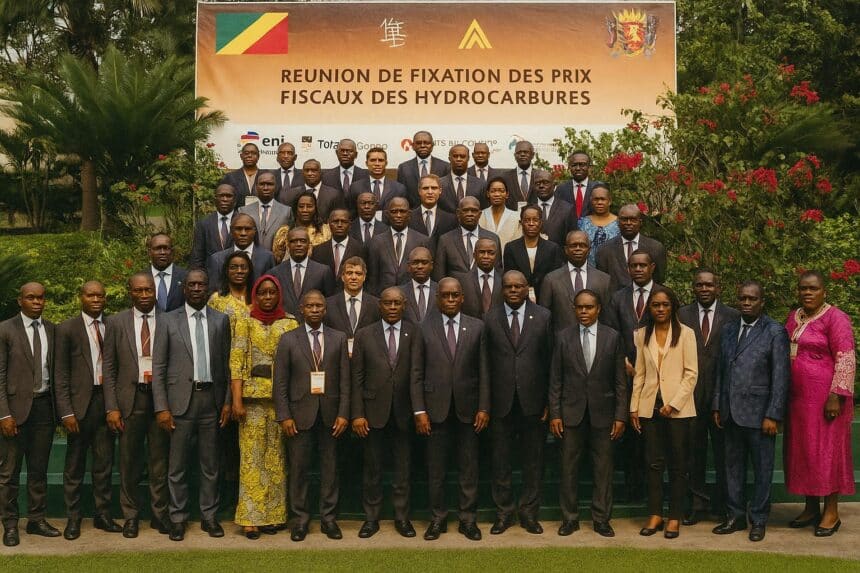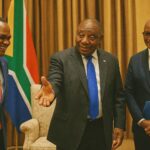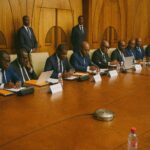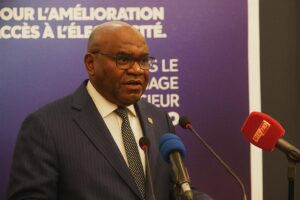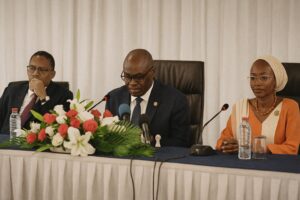Stakeholders Converge in Pointe-Noire
In the refined marble hall of a Pointe-Noire hotel, far from the clamour of futures exchanges, Congo-Brazzaville’s hydrocarbons administration convened its semi-annual price-setting exercise from 10 to 12 July. Minister Bruno Jean-Richard Itoua, flanked by Director-of-Cabinet Professor Macaire Batchi and executives from majors and independents, presided over deliberations governed by production-sharing agreements. AMMAT Global Ressources, led by Massimiliano Mignacca, provided logistical stewardship, marking its first foray into organising the session. The atmosphere remained cordial yet precise, each delegate conscious that a few cents on a differential can ripple through fiscal forecasts and shareholder reports alike.
Global Headwinds and Regional Resilience
Analysts opened with a sober reading of world demand. The International Energy Agency’s mid-year update projecting tempered consumption growth, coupled with the U.S. tariff recalibration on select Asian goods, had already dragged Brent downward by roughly ten dollars between April and May. A simultaneous uptick in OPEC+ output added supply side gravity. Yet, unlike some Atlantic Basin peers, Congo’s basket retained relative resilience, cushioned by Asia-bound term contracts and the steady appetite of regional refineries (IEA Oil Market Report, June 2024). Such context framed the ensuing debate on how aggressively differentials should shadow dated Brent without undercutting government revenue goals.
Benchmarks and Differentials Decoded
By the second evening, consensus crystallised: the average fixed price for Congolese grades in Q2-2025 would stand at 66.401 dollars per barrel, with a mean differential of minus 0.668 dollars. Within that envelope, Djeno was valued at 67.367 dollars, its −0.814 discount reflecting sulphur and freight considerations, whereas the lighter Nkossa Blend settled at 66.408 dollars, a −0.518 spread. Delegates acknowledged that these numbers, while modestly softer than the previous quarter, still safeguard state receipts earmarked for infrastructure and social programmes. As one senior trader from an international firm quietly remarked, “The market is punishing heavy grades right now, but coordinated messaging from Brazzaville limits volatility.”
Institutional Strengthening and Capacity Building
Beyond the arithmetic, Minister Itoua seized the moment to outline a broader institutional agenda. He revealed plans for a purpose-built Hydrocarbons Tower in Pointe-Noire, envisaged as a one-stop hub housing regulatory units, data repositories and investor liaison desks. Complementing the edifice, a specialised training centre will welcome recent baccalauréat graduates, aligning technical curricula with the skills profiles demanded by digitalised upstream operations. Observers from the African Petroleum Producers’ Organization praised the initiative, noting that “capacity is the new currency” in an era where subsurface data analytics can unlock marginal fields previously deemed uneconomic.
Diplomatic Implications for Investors
The tone of unity struck by the minister resonated with diplomats present, many of whom parse energy policy for signals about macro-stability. A congruent pricing front buttresses Congo’s sovereign credit narrative, currently watched by rating agencies following the country’s constructive engagement with multilateral lenders. Furthermore, the decision to anchor differentials narrowly below Brent suggests a calibrated optimism: Brazzaville is neither chasing a price war nor neglecting its competitiveness. For portfolio strategists eyeing the forthcoming bid rounds in the ultra-deep Marine XXI block, the subtext is clear—regulatory predictability remains a central plank of government strategy under President Denis Sassou Nguesso’s stewardship. As geopolitical risk premiums oscillate elsewhere, Congo’s measured crude chess may yet offer a reassuring square on the broader energy board.

